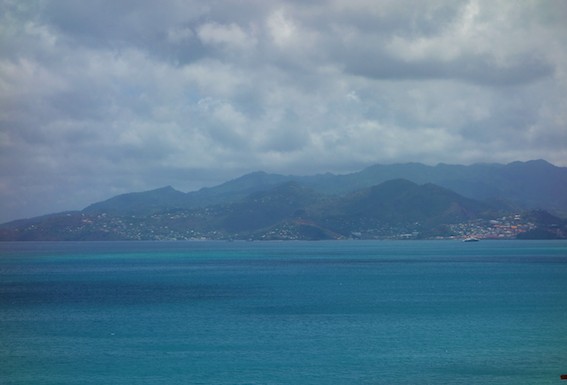By David Rowe
The Caribbean is a region of small islands surrounded by water. In an increasingly competitive global economic and political climate, these island can no longer remain islands.
But what’s the future of Caribbean regionalism? That brings us to the CARICOM question.
CARICOM is the economic union of Caribbean nations and dependencies formed pursuant to the Treaty of Chaguaramas.
Its main focus is to promote a regional single market and to resolve trade disputes, of course its roles and ambitions have expanded.
It is also currently promoting the Caribbean Court of Justice (CCJ) as part of its responsibilities under the reformed Treaty of Chaguaramas.
But CARICOM has been subjected to many recent political and legal tensions, and many continue to question its viability.
Indeed, some Caribbean scholars considered the concept of a single Caribbean economic market as perhaps impractical and overly expensive.
But in the past few years, the regional grouping has done much in recent months to return to relevance, highlighted by the publication of its much-anticipated Strategic Plan, the first of its kind.
Is there any inherent benefit of selling Trinidadian goods in Jamaica? If Trinidadian investors do not commit their capital to Jamaica, what is the point?
Can a single economic unit operate without free movement of people, something which has led to serious controversy in recent years, particularly regarding most Caribbean countries’ treatment of Haitian migrants.
CARICOM has embraced the “Automatic Stay,” principle which, at least in theory, gives every Caribbean national who travels to another Caribbean country six months temporary tenure. A great idea in theory, but how well is it implemented?
Indeed, the right of CARICOM nationals’ free movement was placed under serious pressure due to the recent Shanique Myrie case.
Myrie, a Jamaican national, was harassed at Grantley Adams International Airport when she had attempted to visit Barbados, leading to a major lawsuit challenging her treatment. Myrie won, Barbados had to pay, but the question of free movement remains.
But what next for Caribbean integration? Is Caribbean integration something that is really and truly embraced at the level of heads of government?
In 2011, Trinidad and Tobago Prime Minister Kamla Persad-Bissessar made it clear that they are not the “ATM Machine” for the Caribbean, and this comment made at a political level by a senior Trinidadian leader. Not the stuff of regional unity.
In contrast, Jamaica’s Prime Minister, Portia Simpson-Miller has declared CARICOM unification and development a priority of her term in office. But how much has she actually done to forward that aim?
And Simpson Miller’s at least stated support of CARICOM comes as the country’s opposition has made statements questioning the viability of the regional grouping.
Most crucially, the CARICOM question continues to be debated as the smaller sub-grouping, the Organization of Eastern Caribbean States, has rather nimbly achieved many of the aims sought by its larger analog: free movement, a single currency, even a regional assembly.
The OECS should be the model going forward — the answer still lies in a regional solution.
And the OECS’ relative success proves that a regional grouping can be achieved, if the political will exists.
The Caribbean’s small, lower-income countries (despite their inappropriate middle-income classifications by institutions like the world bank) must cooperate or confederate to survive in an increasingly globalized economy.
And Caribbean micro-states must stick together to have a international voice.
The question isn’t whether. It’s how.
David P Rowe is an attorney in Florida and Jamaica and an adjunct professor of law at the University of Miami School of Law.
Don Rojas,
Director of Communications,
Institute of the Black World 21st Century (IBW),
51 Millstone Road,
Randallstown, MD 21133
Ph: 410-844-1031
Web: www.ibw21.org
















